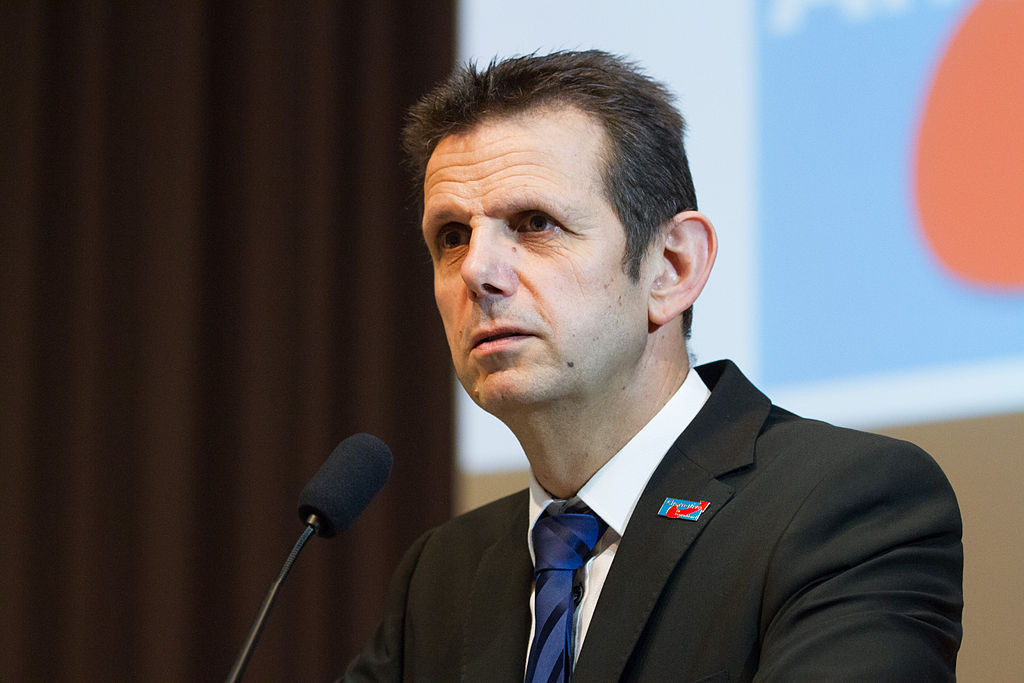Business and Economy
EU-Canada trade agreement strong signal to global partners

Bernd Kolmel, chairman of the European Parliament delegation to Canada, declared in an exclusive interview with Xinhua that a strong message had been sent by the European Parliament’s approval on Wednesday of the EU-Canada Comprehensive Economic and Trade Agreement (CETA). (Photo by Robin Krahl (Own work) [CC BY-SA 4.0)
Asked what message the wide-reaching trade agreement sent to the European Union’s (EU) global partners, the German Member of European Parliament (MEP) was adamant:
“The signal is clear: The EU and its member states are still able to make comprehensive trade deals; refusing to believe in fake news, misleading claims, and anti-globalization propaganda.”
Kolmel considered that the outcome, with 408 votes in favor to 254 against, and 33 abstentions, would be good news for both the EU and Canada.
“CETA will remove tariffs on most goods and services and open up Canada´s public procurement market,” he explained, “therefore, I expect economic growth both in EU member states and Canada to the benefit of its citizens.”
Kolmel, also deputy federal chairman of German party the Liberal-Konservative Reformer (Liberal Conservative Reformists), felt that CETA could serve as a “blueprint” for future trade deals with Mexico and the United States, depending on political developments in those countries.
Asked about the significance of CETA at a time when U.S. President Donald Trump was sparking fears of global protectionism, the MEP said that this was perhaps a step back to European thinkers such Adam Smith, David Ricardo, and Frederic Bastiat, that presented free trade as a way to prosperity.
“The EP made clear that the majority in the EU has no fear of globalization and knows that trade can benefit both sides,” he asserted.
“On the other hand, it is clear that every trade agreement has to be concluded to the benefit of the citizens,” Kolmel clarified, before assuring that: “CETA fulfils these requirements. European standards with regard of ecology or consumer protection will not be touched. The creation of an investment court system, which was co-initiated also by myself, ensures the legal certainty for companies, governments and citizens.”
In the meantime, small and medium-sized enterprises (SMEs) would benefit from the fewer barriers to trade.
“CETA is about reducing trade barriers. There are tariffs, but also non-tariff barriers to trade,” he explained. “Especially, the non-tariff barriers are rather fixed costs. Thus, diminishing them is a bigger help for companies that export only a smaller amount of products. SMEs clearly benefit.”
For consumers, the German MEP saw CETA as a means to stimulate more competition, giving them more products to choose from, and probably lower prices.
“This is a fear, indeed,” he admitted, before asserting that his question to member states who resisted CETA would be: “with whom do you want trade deals, if not with Canada?”
While waiting for ratification on the national level, however, CETA will receive provisional application as early as April 1, and the majority of its measures will be applied.
“If you ask CEOs from export-oriented SMEs, you will get unison, the same answer: ‘CETA is good for our business’,” he said. “Therefore, the probability that the exports will rise already this or next year is high.”





















